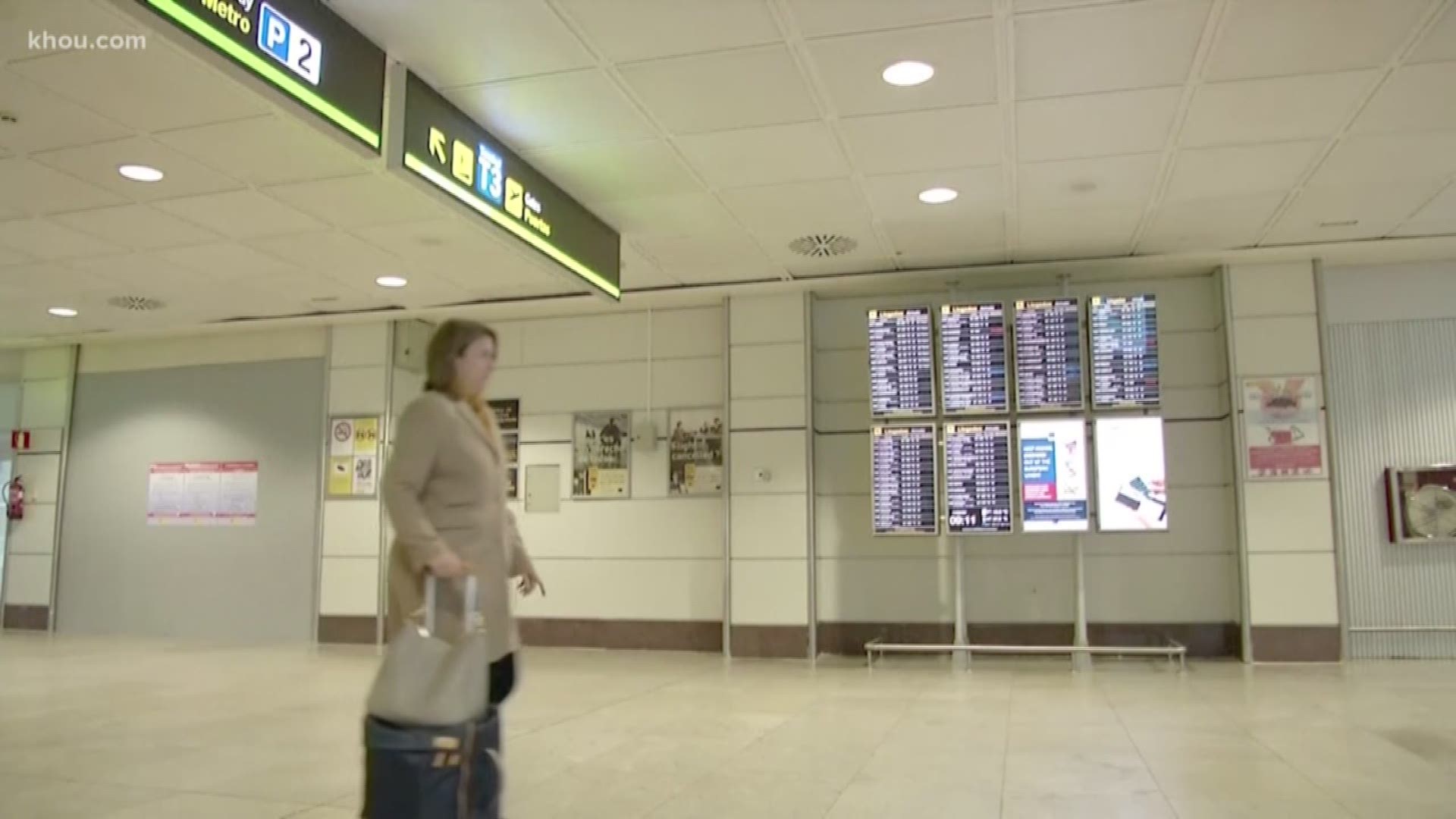HOUSTON — The Department of State advises U.S. citizens to avoid all international travel due to the global impact of COVID-19.
In countries where commercial departure options remain available, U.S. citizens who live in the United States are asked to arrange for immediate return to the United States, unless they are prepared to remain abroad for an indefinite period.
The Department of State said many countries are experiencing COVID-19 outbreaks and implementing travel restrictions and mandatory quarantines, closing borders and prohibiting non-citizens from entry with little advance notice.
If someone chooses to travel internationally, the Department of State said travel plans may be severely disrupted, and some may be forced to remain outside of the United States for an indefinite time frame.
This type of global advisory is unprecedented and could have big consequences for travelers.
Houston is an international city. Together, IAH and Hobby Airports typically fly more than 100,000 passengers to their international destinations per month. However, that’s about to grind to a halt.
Peter Greenberg, travel editor for CBS News, breaks down what this advisory means for travelers.
“If you are contemplating travel, what Level 4 designation means is that you cannot travel and be covered by your insurance,” Greenberg said.
For those already out of the county, they’re asked to come home quickly.
“Easier said than done. We have the European Union closing all of its borders. We have most airlines grounding their planes…” Greenberg said. “So now you have a panic situation overseas as everyone is trying to get home when they have no way to do it.”
The advisory warns those who don’t come home or can’t could be stuck indefinitely.
Canceling trips is a costly request. As hotels, airlines and cruise ships struggle, refunds aren’t always guaranteed. Greenberg’s advice for those with travel plans later in the year is don’t cancel yet.
“If you are holding a ticket for May, June even July, stick around, take a deep breath, no pun intended, and hope for the best," he said.
Coronavirus symptoms
The symptoms of coronavirus can be similar to the flu or a bad cold. Symptoms include a fever, cough and shortness of breath, according to the Centers for Disease Control.
Most healthy people will have mild symptoms. A study of more than 72,000 patients by the Centers for Disease Control in China showed 80 percent of the cases there were mild.
But infections can cause pneumonia, severe acute respiratory syndrome, kidney failure and even death, according to the World Health Organization. Older people with underlying health conditions are most at risk.
The CDC believes symptoms may appear anywhere from two to 14 days after being exposed.
Human coronaviruses are usually spread through...
- The air by coughing or sneezing
- Close personal contact, such as touching or shaking hands
- Touching an object or surface with the virus on it, then touching your mouth, nose or eyes before washing your hands.
Help stop the spread of coronavirus
- Stay home when you are sick.
- Eat and sleep separately from your family members
- Use different utensils and dishes
- Cover your cough or sneeze with your arm, not your hand.
- If you use a tissue, throw it in the trash.
Lower your risk
- Wash your hands often with soap and water for at least 20 seconds. If soap and water are not available, use an alcohol-based hand sanitizer.
- Avoid touching your eyes, nose, and mouth with unwashed hands.
- Avoid close contact with people who are sick.
- Clean and disinfect frequently touched objects and surfaces.
- If you are 60 or over and have an underlying health condition such as cardiovascular disease, diabetes or respiratory illnesses like asthma or COPD, the World Health Organization advises you to try to avoid crowds or places where you might interact with people who are sick.
Get complete coverage of the coronavirus by texting 'FACTS' to 713-526-1111.

